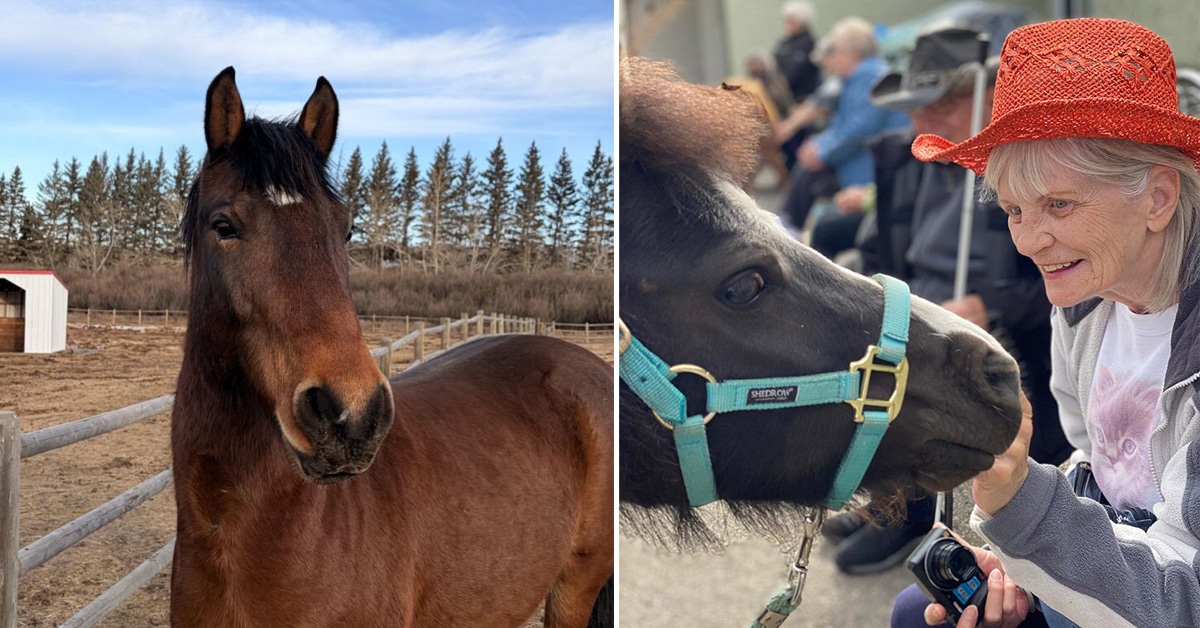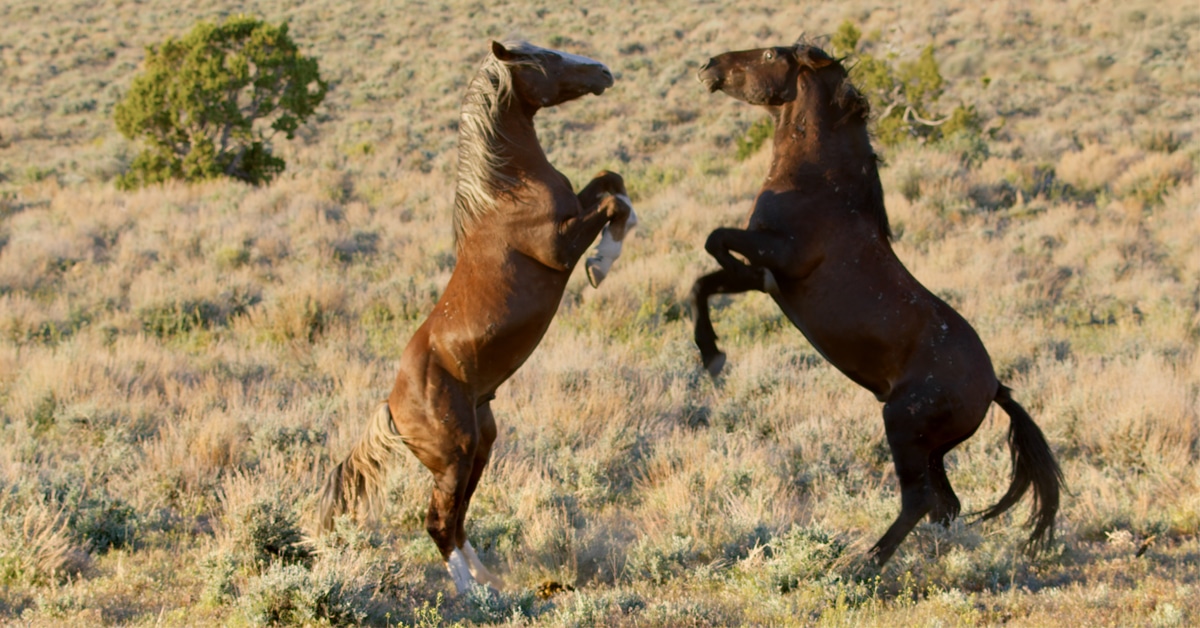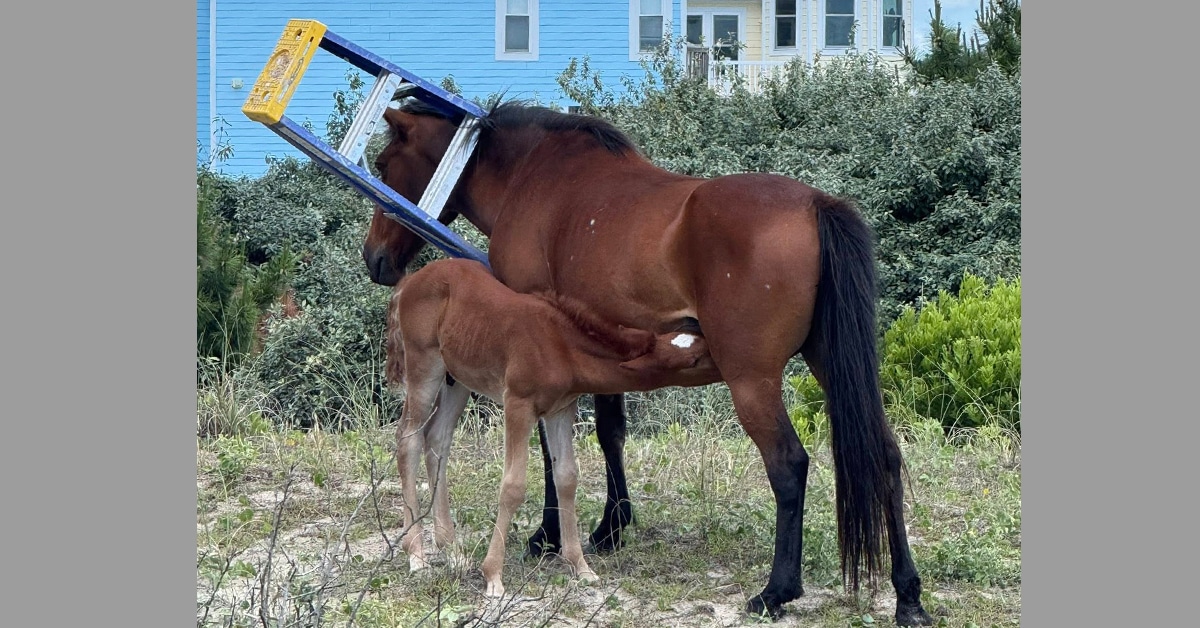A newly released, peer-reviewed study in the scientific journal Vaccines provides further evidence of the feasibility of humane fertility control as a viable alternative to helicopter roundups and removals for wild horse management on Western public lands. The study, led by University of Pretoria professor Dr. Martin Shulman, a veterinary specialist in equine reproduction and expert on non-lethal methods for the management of wildlife, including elephants and wild horses, evaluated data from American Wild Horse Conservation’s fertility control program on free-roaming horses in Nevada’s Virginia Range. It concludes:
[T]his method of immunocontraception was associated with providing an effective, humane, publicly acceptable, and practical alternative to the previous reliance on lethal, logistically demanding, or inhumane control methods.
The AWHC Virginia Range fertility control program utilizes PZP (porcine zona pellucida) immunocontraceptive vaccine delivered remotely by darting to wild mares. Launched in 2019, the program has stabilized population growth in a roughly 3,500-horse population living in a nearly 300,000-acre habitat area in northern Nevada. Its success, verified in the new paper, demonstrates the feasibility of fertility control for large wild horse populations who reside in expansive habitats.
“Our hope is that this study provides impetus to the growing calls for reform of the federal wild horse management program, which relies on costly helicopter roundups, the unsustainable removal of wild horses, and confinement of these animals in tax-funded holding facilities.” Said Nicole Hayes, AWHC’s conservation scientist.
On April 18th, Hayes will present this data at the 39th annual World Veterinary Congress in Cape Town, South Africa. She is one of 104 international speakers presenting to the conference of around 1,500 attendees. This conference includes scientists and veterinarians across all disciplines to come together to explore challenges facing not only animal health and welfare but the environment.
Other key findings of the paper include:
- The Virginia Range was previously reported as impractical and cost-prohibitive for a multiple-year PZP vaccination program due to the large population and extensive area. Despite this, the program achieved vaccination coverage within four years of ~¾ of the mares who inhabit the expansive range.
- The sustained use of the PZP vaccine led to a ~60% reduction in foal births within four years and achieved a 72.5% population coverage from 2019-2022.
- This population coverage has resulted in a conception rate of only ~10 percent by 2022, with no shift or widening of the foaling season.
- A database with individualized records of all horses, including males, females, and juveniles, played a crucial role in the program’s success during its initial 4 years.
“This study provided a unique opportunity to obtain the data to support the feasibility of large-scale delivery of PZP immunocontraception in a large population of free-roaming horses,” said Dr. Schulman. “These findings demonstrated that this treatment provided a practical, humane, and successful management of wild horse populations in the western USA.”
“The efficacy of the PZP vaccine in wild herds has been well established for decades. This paper adds to the scientific literature by demonstrating the feasibility of the vaccine to manage large wild horse herds, and its use as a viable alternative to the federal government’s approach, which has yet to produce sustainable outcomes,” said Hayes.
Congress recently reduced the Bureau of Land Management’s budget by over $5 million, while preserving an $11 million allocation for the robust implementation of humane fertility control, signaling a shift towards more sustainable, in-the-wild conservation practices. Other reform initiatives include legislation introduced by U.S. Rep. Dina Titus (D-Nev.) to ban the use of helicopters and other aircraft for wild horse and burro roundups. In the wild solutions, such as AWHC’s program on the Virginia Range, offer a more cost-effective and humane conservation tool for America’s wild horses.
About American Wild Horse Conservation
American Wild Horse Conservation (AWHC) is the nation’s leading nonprofit wild horse conservation organization, with more than 700,000 supporters and followers nationwide. AWHC is dedicated to preserving the American wild horse and burros in viable, free-roaming herds for generations to come, as part of our national heritage. In addition to advocating for the protection and preservation of America’s wild herds, AWHC implements the largest wild horse fertility control program in the world through a partnership with the State of Nevada for wild horses that live in the Virginia Range near Reno.
More News









